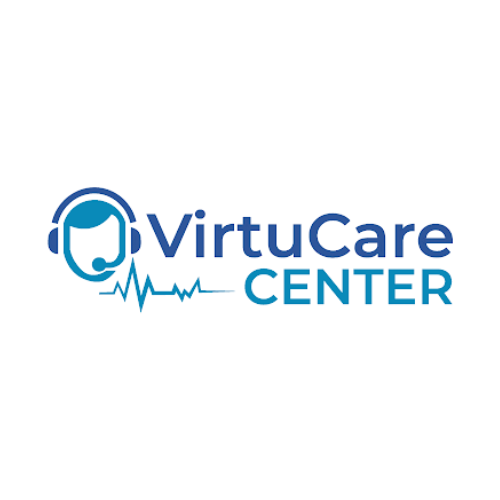Our Latest Articles

Our Virtual Assistants take on the critical administrative tasks

How Virtual Assistants Are Transforming Healthcare Administration with Medical Administrative Virtual Assistant Services
Sixty-three percent of physicians cite administrative overload as the biggest driver of burnout, yet outsourcing remains underutilized. VirtuCare Center’s HIPAA-certified medical administrative virtual assistant services reclaim staff time by automating scheduling, billing, and documentation—boosting efficiency and patient engagement.
Documentation Overload and Internist Burnout
A 2024 report highlighted that 49% of physicians reported feeling burned out, with 62% citing too many bureaucratic tasks as a major contributor. This administrative burden significantly contributes to physician dissatisfaction and impacts their overall well-being and quality of life.This research directly supports the article's claim that administrative overload is a major driver of physician burnout, providing a specific statistic and source.
In the sections below, we define healthcare virtual assistants, compare them with AI, explore compliance safeguards, quantify cost savings, delve into task capabilities, outline implementation steps, identify ideal practice types, forecast future trends, and address critical provider questions.
What Are Healthcare Virtual Assistants and How Do They Support Your Agency's Administration?
Healthcare virtual assistants are remote professionals trained in administrative, clinical, and patient-facing workflows to streamline operations in medical practices. By integrating with electronic health records and practice management systems, they perform scheduling, intake, billing, and follow-up tasks that normally consume front-office resources. For example, a VA can coordinate appointments across multiple providers, reducing no-show rates and freeing clinicians to focus on patient care.
Appointment Support: From scheduling and reminders to rescheduling when plans change, our VAs keep calendars organized and patients on track.
Patient Intake & Screening: They manage intake forms, verify eligibility, and conduct pre-visit screenings to create a smooth, stress-free start for patients.
Billing & Claims: With accuracy and attention to detail, they handle medical billing, coding verification, and claims submission to reduce errors and improve reimbursements.
Insurance Coordination: Our VAs process authorizations, verify coverage, and follow up on denials, helping practices avoid delays and lost revenue.
EHR/EMR Management: They update records with clinical notes and demographic details, ensuring providers always have accurate, up-to-date patient information at their fingertips.
These support functions collectively reduce administrative burden, laying the foundation for deeper role analysis in the following sections.
What roles and tasks do healthcare virtual assistants perform?
Healthcare Virtual Assistants provide essential support that keeps your practice running smoothly while helping you protect valuable time for patient care. By managing both back-office and front-office responsibilities, they not only ease administrative stress but also strengthen productivity and improve revenue cycle management.
Appointment Coordination & Reminders – Our VAs schedule visits, manage rescheduling needs, and make reminder calls to reduce no-shows and keep your day organized.
Patient Intake & Pre-Visit Data Collection – They handle forms, gather eligibility information, and complete screenings so providers can start each visit fully prepared.
Medical Billing, Coding & Claims Management – With accuracy and diligence, they process billing, verify coding, and manage claims submission to help ensure timely reimbursement.
Insurance Verification & Prior Authorization – VAs confirm coverage, process authorizations, and follow up on approvals or denials to prevent costly delays.
EHR/EMR Documentation & Charting – They update charts, record clinical notes, and maintain demographic details so providers always have accurate, up-to-date records.
With this level of support, your practice gains more than just administrative relief—it gains a trusted partner committed to smoother workflows, reduced burnout, and a better patient experience.
By covering these core functions, virtual assistants reinforce operational stability and prepare practices for accelerated growth.
How do healthcare virtual assistants differ from AI-powered assistants?
Human healthcare virtual assistants blend technical expertise and clinical nuance, while AI-powered assistants rely on algorithms to automate specific functions. Virtual assistants adapt to complex insurance scenarios and custom EHR workflows, whereas AI bots excel at rule-based tasks like standard reminders and data extraction.
Professional judgment for complex insurance appeals
Customizable workflows aligned with unique practice policies
HIPAA-trained personnel handling sensitive clinical information
Real-time decision-making in dynamic patient interactions
This human-driven flexibility ensures continuity of care beyond what fully automated systems can deliver.
What makes virtual assistants HIPAA-compliant and secure?
HIPAA-compliant virtual assistants complete rigorous training on privacy and security standards and use encrypted platforms to safeguard protected health information. They follow defined protocols for data access, transmission, and storage, ensuring every interaction meets regulatory requirements.
Completion of formal HIPAA certification programs
Use of secure VPNs and end-to-end encrypted communication
Strict access controls and audit trails for all systems
Regular security assessments and compliance audits
Benefits of Healthcare Virtual Assistants: Cost Savings and HIPAA Compliance
Healthcare Virtual Assistants (HVAs) can significantly reduce staffing expenses, with some reports indicating savings of up to 70% compared to in-house staff. Additionally, HIPAA-compliant virtual assistants are trained in regulations, utilize secure platforms, and implement strict access controls to protect patient data, ensuring both operational efficiency and data security.This citation verifies the cost-saving potential and the critical aspect of HIPAA compliance for virtual medical assistant services, aligning with the article's key benefits and safeguards.
What Are the Key Benefits of Using Virtual Medical Assistants in Healthcare?
Virtual medical assistants reduce costs, enhance patient satisfaction, and improve clinical staff well-being by transferring repetitive tasks to specialized remote professionals. By outsourcing non-clinical workflows, practices can reinvest time and resources into patient care and revenue-generating activities. For instance, clinics report up to a 40 percent reduction in administrative hours within weeks of implementation.
Benefit
Mechanism
Value
Cost Savings
Outsourcing non-clinical tasks reduces staffing overhead
Lowers administrative costs by 50–60 percent
Burnout Reduction
Delegating time-consuming tasks to trained VAs
Alleviates administrative overload for clinicians
Patient Engagement
Automated reminders and digital follow-ups
Increases appointment adherence and satisfaction
Operational Efficiency
Standardized workflows and real-time reporting
Boosts productivity and resource utilization
Data Security
HIPAA-compliant processes and encrypted platforms
Ensures patient privacy and regulatory compliance
These advantages underscore why practices across specialties are adopting virtual assistants at an accelerating pace.
How do virtual assistants reduce administrative burden and physician burnout?
Virtual assistants free up clinicians by taking over repetitive tasks like data entry and claim follow-up, allowing providers to focus on direct patient care. This delegation lowers stress and improves work-life balance, leading to higher job satisfaction and lower turnover rates.
What cost savings can healthcare providers expect from outsourcing administrative tasks?
Healthcare providers commonly see a 50–60 percent reduction in administrative payroll and overhead costs by replacing on-site back-office roles with remote virtual assistants. These savings stem from lower recruitment, training, and benefits expenses.
How do virtual assistants improve patient scheduling and engagement?
By automating appointment reminders, confirmations, and rescheduling, virtual assistants decrease no-show rates by up to 30 percent. They also manage follow-up calls for post-visit care instructions, boosting overall patient satisfaction and practice reputation.
How do virtual assistants enhance operational efficiency and productivity?
Virtual assistants implement standardized workflows and leverage real-time dashboards to track key performance indicators like billing cycle time and patient wait times. This data-driven approach leads to measurable productivity gains and streamlined administrative processes.
Which Healthcare Administrative Tasks Can Virtual Assistants Handle?
Virtual assistants cover a comprehensive set of administrative tasks that span revenue cycle management, front-desk support, and clinical documentation. Their flexible expertise supports virtually every non-clinical function in a medical practice.
Administrative Task
Functionality
Impact
Appointment Scheduling
Organizes patient visits using integrated systems
Reduces no-shows by 30 percent
Medical Billing & Coding
Processes claims and verifies codes for accuracy
Speeds reimbursement cycle by 20 percent
Insurance Verification
Confirms coverage and authorizations before appointments
Minimizes claim denials by 25 percent
EHR/EMR Data Entry
Updates patient records with clinical and administrative data
Improves chart accuracy by 15 percent
Patient Intake Management
Collects demographic and medical history remotely
Streamlines front-office workflows by 40 percent
These capabilities make virtual assistants indispensable for practices seeking to optimize back-office operations and revenue flow.
How do virtual assistants streamline medical billing and coding processes?
Virtual assistants apply verified coding guidelines and perform claim scrubbing to reduce billing errors and denials. Their expertise accelerates claim submission and accelerates reimbursements.
What role do virtual assistants play in patient intake and appointment scheduling?
They gather and verify patient information, obtain medical histories, and manage appointment slots, ensuring accurate record-keeping and efficient front-office workflows.
How do virtual assistants support insurance verification and prior authorization?
By checking coverage details and submitting authorization requests in advance, virtual assistants prevent delays in care delivery and minimize claim rejections.
How do virtual assistants manage EHR/EMR data entry and documentation?
They enter clinical notes, test results, and referrals directly into electronic records, ensuring up-to-date charts and compliance with documentation standards.
How Can Healthcare Practices Implement and Integrate Virtual Assistants Effectively?
Integrating virtual assistants into a healthcare practice requires a clear roadmap, technology alignment, and ongoing performance monitoring. Following structured steps ensures seamless adoption and measurable outcomes.
Assess Current Workflows and Identify Outsourcing Opportunities.
Select a HIPAA-Certified VA Provider with Relevant Healthcare Expertise.
Conp Secure Access to EHR/EMR and Practice Management Platforms.
Define Standard Operating Procedures and Communication Protocols.
Conduct Initial Training Sessions and Establish Quality Benchmarks.
Monitor Performance Metrics and Adjust Workflows Based on Insights.
These steps establish a scalable framework for virtual assistant adoption and continuous improvement.
What are the essential steps to integrate a virtual assistant into a healthcare practice?
Begin by mapping all administrative processes and selecting high-impact tasks for delegation. Next, establish secure system access and detailed SOPs before onboarding your VA with structured training and trial runs.
How can providers measure the ROI of virtual assistant services?
Providers track ROI by comparing pre- and post-implementation metrics such as administrative hours, billing cycle times, and revenue recovery rates. A positive ROI typically emerges within three months.
What are best practices for training and managing HIPAA-certified virtual assistants?
Regular compliance refreshers, clear performance benchmarks, weekly feedback sessions, and encrypted communication channels ensure consistent quality and regulatory adherence.
Which Types of Healthcare Practices Benefit Most from Virtual Assistant Services?
Practices of all sizes can leverage virtual assistant support, but certain settings realize immediate gains based on volume and complexity of administrative tasks. Virtual assistants adapt to diverse workflows in private clinics, mental health agencies, home care, and wound care services.
Private Medical Practices benefit from streamlined front-desk operations and reduced staffing overhead.
Mental Health Agencies gain support in patient outreach, billing complexities, and documentation tracking.
Home Care and Wound Care Agencies optimize field visit coordination, insurance verifications, and care plan updates.
These tailored solutions enable each practice type to enhance patient care while controlling administrative costs.
How do private medical practices utilize virtual assistants?
Small to medium practices use virtual assistants to handle scheduling, billing, and front-office inquiries, allowing clinicians to maintain personalized patient interactions.
What advantages do mental health agencies gain from virtual assistant support?
Mental health providers rely on VAs for discreet patient communication, insurance prior authorizations, and timely documentation, improving both care continuity and billing accuracy.
How do home care and wound care agencies benefit from virtual assistants?
Agencies coordinate field visits, manage care logs, and streamline claim submissions remotely, reducing travel-related administrative loads.
What Are the Future Trends in Healthcare Administration with Virtual Assistant Support?
Emerging trends in healthcare administration center on hybrid VA-AI models, telehealth integration, and data-driven workflows. Practices that adopt these innovations will achieve deeper efficiency gains and elevated patient experiences.
Trend
Driver
Outcome
AI-Powered Assistance
Advances in machine learning and NLP algorithms
Hybrid VA-AI models enhance decision support
Telehealth Integration
Growth in remote care and virtual consultations
Expands VA roles to digital platform coordination
Data-Driven Workflows
Adoption of analytics and performance metrics
Optimizes task allocation and practice insights
Specialization Services
Demand for niche expertise (e.g., mental health)
Tailors VA skill sets to specific clinical needs
These trajectories point to a future where virtual assistants augment both clinical and administrative workflows in richer, more specialized ways.
How will AI integration and telehealth shape virtual assistant roles?
AI integration will automate routine data extraction while VAs focus on complex decision-making, and telehealth expansion will position assistants as coordinators of virtual visits and patient engagement.
What market growth and specialization trends are emerging for healthcare virtual assistants?
The market is projected to exceed $19.5 billion by 2035, with a growing emphasis on specialized services such as medical scribing, pharmacy support, and behavioral health coordination.
How will data-driven decision-making improve virtual assistant effectiveness?
Analytics will guide task prioritization, workload balancing, and continuous process refinement, ensuring virtual assistants deliver optimized support aligned with practice goals.
What Are Common Questions About Virtual Assistants in Healthcare?
Providers often seek clarity on definitions, costs, compliance, and impact when evaluating virtual assistant support. Addressing these core inquiries helps organizations make informed decisions and set realistic expectations.
What is a virtual medical assistant and how do they help healthcare providers?
A virtual medical assistant is a remote professional who delivers administrative, billing, and patient engagement services to healthcare providers. They enable practices to maintain seamless front-office operations and accelerate revenue cycle processes while ensuring HIPAA compliance.
How much does hiring a healthcare virtual assistant typically cost?
Hiring a healthcare virtual assistant generally ranges from $25 to $45 per hour, depending on task complexity, required certifications, and service volume. This model delivers significant savings compared to on-site staff salaries and benefits.
How do virtual assistants ensure patient data privacy and HIPAA compliance?
They complete formal HIPAA training, use encrypted communication platforms, follow strict access controls, and participate in regular security audits. These measures protect patient records and maintain regulatory adherence.
How do virtual assistants improve patient care while reducing administrative workload?
By managing non-clinical tasks like appointment reminders, intake processing, and billing follow-ups, virtual assistants free clinicians to devote more time to direct patient interactions, resulting in enhanced care quality and staff satisfaction.
Virtual assistants are reshaping healthcare administration by offloading tedious workflows, cutting costs, and enhancing patient engagement. Practices that integrate these medical administrative virtual assistant services experience faster revenue cycles, reduced clinician burnout, and stronger compliance safeguards. As AI, telehealth, and data analytics continue to advance, virtual assistants will evolve into even more specialized, insight-driven partners for healthcare providers. Contact VirtuCare Center today for a free discovery call and unlock the full potential of virtual assistant support in your practice.
© 2025 VirtuCare Center.
All rights reserved.
Empowering healthcare providers with reliable, HIPAA-aware virtual assistant support.
Serving in-home care, mental health, non-medical, and specialized care agencies nationwide.
CONTACT US
We’re available by phone (602) 878-4563
Email: [email protected]
Opening Hours: Monday - Friday 8 to 6 CST
HELP & SUPPORT
Slack
Support Ticket

